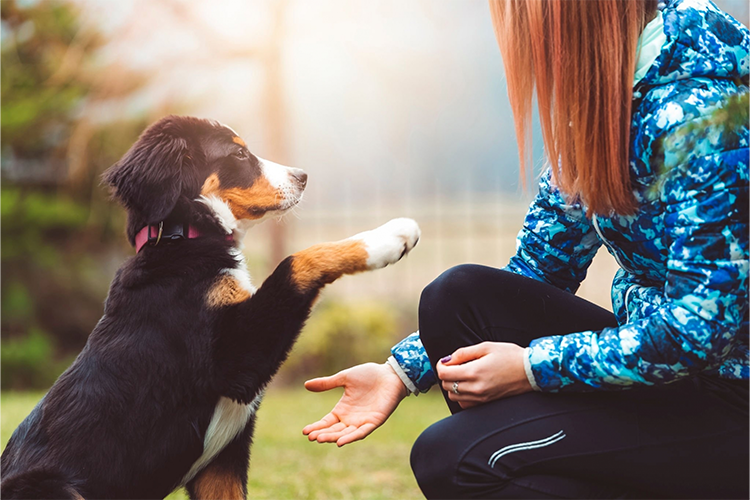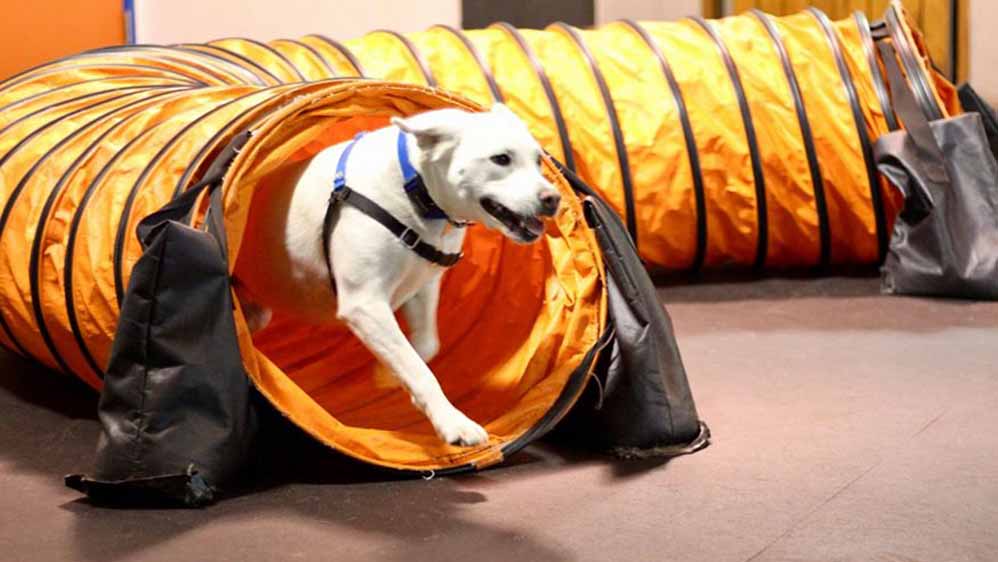Fun Activities to Enhance Your Dog Training Experience
Fun Activities to Enhance Your Dog Training Experience
Blog Article
Necessary Tips for Effective Dog Training: A Guide for Pet Owners
Reliable canine training is a multifaceted process that calls for a calculated approach customized to both the pet's temperament and the owner's purposes. Trick parts such as establishing constant commands, using positive support, and promoting early socializing play vital functions in promoting a well-adjusted canine companion. Nevertheless, lots of pet dog proprietors come across difficulties that can impede development, causing stress and unpredictability. Comprehending how to browse these challenges can substantially boost the training experience, ultimately changing the relationship in between proprietor and pet dog. What are the necessary techniques that can be employed to make sure success in this undertaking?
Comprehending Canine Behavior
Recognizing pet dog behavior is crucial for effective training and promoting a harmonious connection in between pooches and their owners. dog training. Dogs connect primarily with body language, vocalizations, and activities, making it crucial for proprietors to translate these signals properly.

Socializing plays a significant function in dog habits; exposure to numerous settings, people, and other animals can considerably impact a dog's personality. In addition, variables such as type qualities and individual temperament need to lead training techniques, as some types may have particular behavior traits that require customized strategies. By understanding these components, owners can develop a helpful setting that motivates favorable habits, leading to effective training outcomes and a much deeper bond with their pets.
Developing Consistent Commands
Reliable communication with your pet begins with developing constant commands. This fundamental aspect of training is critical for cultivating understanding in between you and your pet. Uniformity in the commands you utilize ensures that your pet can reliably link details words or phrases with the wanted behaviors.
When choosing commands, pick clear, distinct words that are very easy to say and separate from one another. Prevent making use of similar-sounding commands that may puzzle your dog. Making use of "rest" and "stay" is appropriate, however "rest" and "struck" could lead to misconceptions.
Additionally, maintain the same tone and volume for every command. Pets are delicate to singing cues, so differing your tone can create complication.
It is just as vital to ensure that all household participants are on the same web page regarding the commands made use of. A united front in command use will protect against combined signals and strengthen the knowing process.
Favorable Reinforcement Techniques
The power of favorable reinforcement in dog training exists in its capability to encourage desired habits with benefits and appreciation. This method is grounded in the principle that actions complied with by beneficial outcomes are more probable to be duplicated. By integrating favorable reinforcement right into your training program, you can successfully form your pet dog's behavior in a useful manner.
To carry out positive reinforcement, it's important to recognize what inspires your pet, whether it be treats, playthings, or verbal appreciation. When your dog does see a desired activity, such as remaining on command, promptly reward them with a reward or love. This association between the command and the favorable outcome reinforces their understanding.
It's essential to timing the benefits appropriately; delivering the support within secs of the desired behavior helps your dog make the link (dog training). In addition, uniformity is essential-- guarantee that all member of the family use the same commands and incentive systems to stay clear of complication

Progressively, you can minimize the regularity of treats as your pet finds out the actions, transitioning to applaud or periodic benefits. This approach not just promotes a strong bond between you and your pet dog yet likewise advertises a favorable learning environment, making training a satisfying experience for both.
Socialization and Communication
Continually revealing your dog to a variety of environments, people, and other animals is essential for their social development. Socializing should begin early, preferably throughout the critical window of 3 to 14 weeks, when puppies are most responsive to brand-new experiences. Older pet dogs can likewise benefit from ongoing socialization efforts.
Present your pet dog to different setups, internet such as parks, pet-friendly stores, and city locations. This exposure helps them adapt to various stimuli, decreasing anxiety and worry actions. Urge positive interactions with various other pets and individuals, making sure that these experiences are controlled and safe to cultivate self-confidence.
Make use of structured playdates with genteel pet dogs, as this can enhance your pet's social skills and educate them suitable actions. Obedience classes and training sessions additionally supply excellent possibilities for socialization, enabling your dog to engage with others in a supervised setting.
Screen your pet's body language throughout communications, as this will aid you gauge their convenience degree. Slowly raise exposure to even more tough situations while making certain that each experience is positive. A well-socialized pet dog is more probable to display balanced behavior, making them a happiness to have in any setting.
Attending To Usual Training Challenges
Every canine proprietor will certainly encounter training difficulties eventually, no matter of their dog's age or socialization level. Recognizing usual issues such as stubbornness, disturbances, and fearfulness can assist in establishing reliable strategies for improvement.

Gradually introduce distractions as the pet comes to be a lot more skillful in commands. Short, regular training sessions are likewise effective in maintaining focus.
Terror can impede a canine's learning procedure. Steady desensitization to the source of worry, coupled with positive reinforcement, can help reduce stress and anxiety. Perseverance is critical; never require a pet dog right into a situation that causes distress, as this might aggravate the concern.
Ultimately, understanding and attending Visit Your URL to these usual difficulties with a structured technique will cultivate a much more productive training experience, reinforcing the bond between pet and owner while advertising efficient learning.
Final Thought
In summary, effective dog training relies upon an extensive understanding of canine actions, the establishment of regular commands, and the application of positive support techniques. Socializing plays a vital role in creating well-adjusted animals, while resolving common training difficulties requires persistence and flexibility. By executing these crucial techniques, pet dog owners can promote a solid bond with their pets and advertise desirable habits, ultimately bring about a harmonious partnership in between humans and their canine buddies.
Recognizing dog habits is crucial for effective training and promoting an unified partnership in between canines and their owners.Socialization plays a substantial duty in dog behavior; exposure to different settings, individuals, and various other pets can significantly affect a pet dog's temperament.The power of positive reinforcement in pet dog training exists in its capacity to urge wanted actions through rewards and praise. By incorporating positive reinforcement into your training regimen, you can efficiently shape your canine's habits in a useful way.
In summary, successful canine training depends on a detailed understanding of canine habits, the facility of constant commands, and the application of positive reinforcement methods.
Report this page